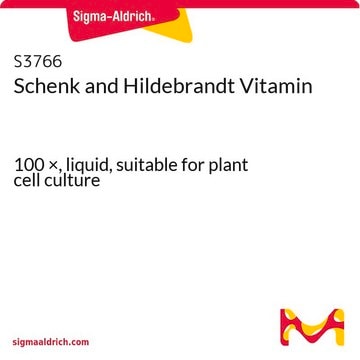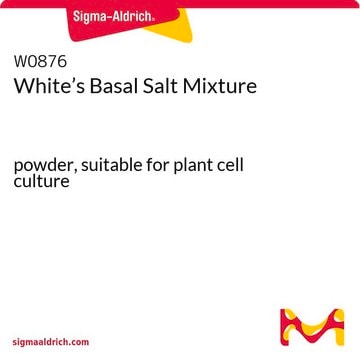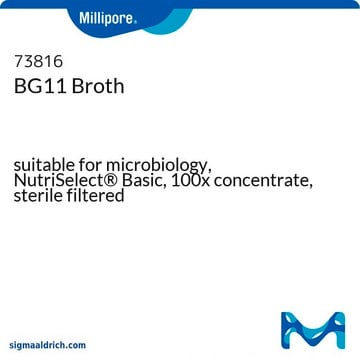S6765
Schenk and Hildebrandt Basal Salt Mixture
fine powder, suitable for plant cell culture
About This Item
Productos recomendados
formulario
fine powder
Nivel de calidad
técnicas
cell culture | plant: suitable
aplicaciones
agriculture
temp. de almacenamiento
2-8°C
Aplicación
Variante de la fórmula
Palabra de señalización
Warning
Frases de peligro
Consejos de prudencia
Clasificaciones de peligro
Ox. Sol. 3
Código de clase de almacenamiento
5.1B - Oxidizing hazardous materials
Clase de riesgo para el agua (WGK)
WGK 1
Punto de inflamabilidad (°F)
Not applicable
Punto de inflamabilidad (°C)
Not applicable
Certificados de análisis (COA)
Busque Certificados de análisis (COA) introduciendo el número de lote del producto. Los números de lote se encuentran en la etiqueta del producto después de las palabras «Lot» o «Batch»
¿Ya tiene este producto?
Encuentre la documentación para los productos que ha comprado recientemente en la Biblioteca de documentos.
Los clientes también vieron
Artículos
Classical plant tissue culture media developed years ago by pioneers such as Murashige, Skoog, Gamborg, and others still play a vital role in plant tissue culture research today.
Nuestro equipo de científicos tiene experiencia en todas las áreas de investigación: Ciencias de la vida, Ciencia de los materiales, Síntesis química, Cromatografía, Analítica y muchas otras.
Póngase en contacto con el Servicio técnico










